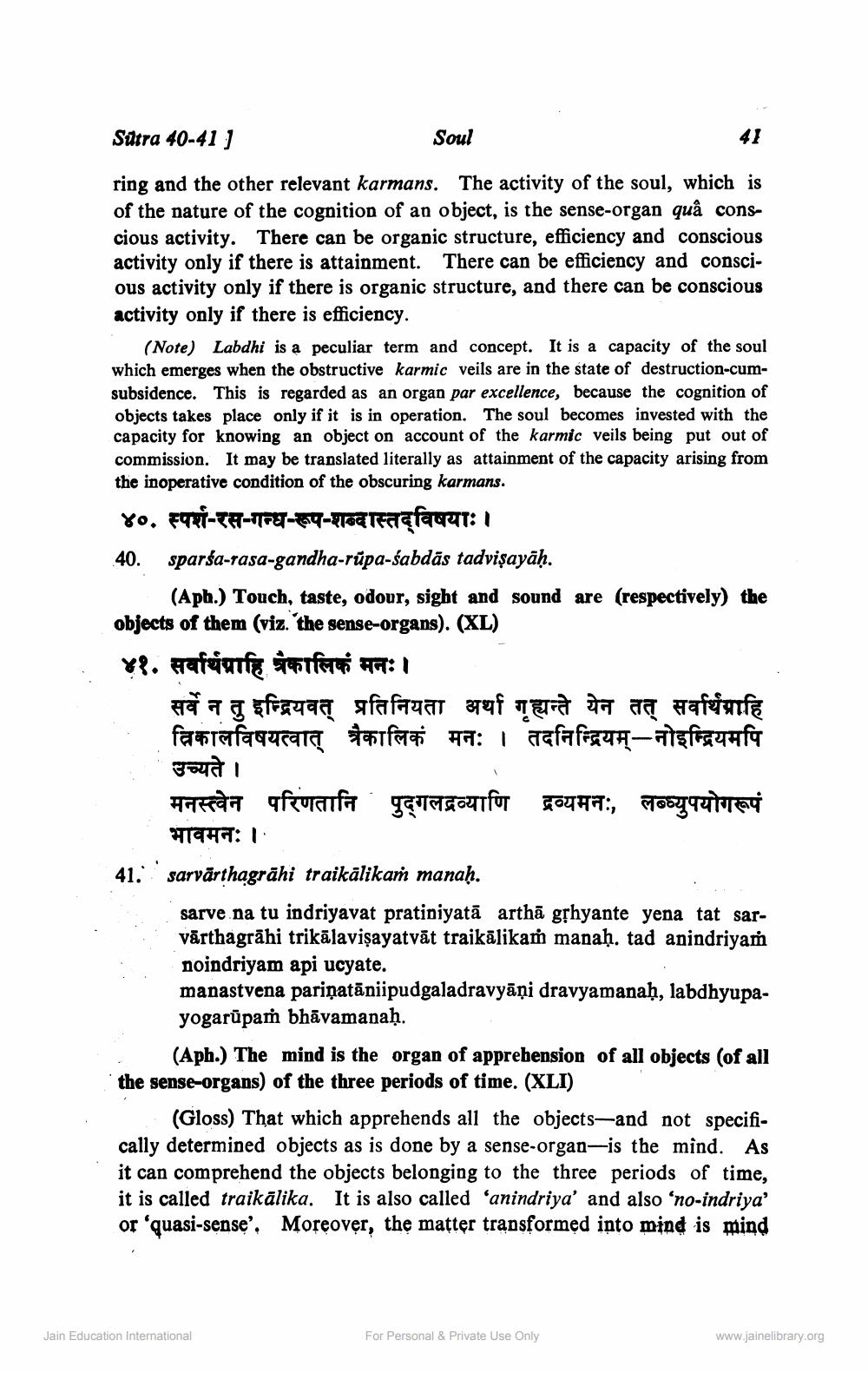________________
Sutra 40-41 ]
Soul
ring and the other relevant karmans. The activity of the soul, which is of the nature of the cognition of an object, is the sense-organ quả conscious activity. There can be organic structure, efficiency and conscious activity only if there is attainment. There can be efficiency and conscious activity only if there is organic structure, and there can be conscious activity only if there is efficiency.
(Note) Labdhi is a peculiar term and concept. It is a capacity of the soul which emerges when the obstructive karmic veils are in the state of destruction-cumsubsidence. This is regarded as an organ par excellence, because the cognition of objects takes place only if it is in operation. The soul becomes invested with the capacity for knowing an object on account of the karmic veils being put out of commission. It may be translated literally as attainment of the capacity arising from the inoperative condition of the obscuring karmans.
80. FYRİ-TA-TTFET-E94-2002 Tracfaat: 1 40. sparsa-rasa-gandha-rūpa-sabdās tadvişayāḥ.
(Aph.) Touch, taste, odour, sight and sound are (respectively) the objects of them (viz. 'the sense-organs). (XL) ४१. सर्वार्थग्राहि त्रैकालिकं मनः।
सर्वे न तू इन्द्रियवत प्रतिनियता अर्था गृह्यन्ते येन तत् सर्वार्थग्राहि त्रिकालविषयत्वात् त्रैकालिकं मनः । तदनिन्द्रियम्-नोइन्द्रियमपि goudi मनस्त्वेन परिणतानि पुद्गलद्रव्याणि द्रव्यमनः, लब्ध्युपयोगरूपं
TCHGT: 1 41. sarvārthagrāhi traikālikam manaḥ.
sarve na tu indriyavat pratiniyatā arthā gļhyante yena tat sarvārthagrāhi trikālavişayatvāt traikālikam manah. tad anindriyam noindriyam api ucyate. manastvena pariņatāniipudgaladravyāņi dravyamanaḥ, labdhyupayogarūpam bhāvamanah.
(Aph.) The mind is the organ of apprehension of all objects (of all the sense-organs) of the three periods of time. (XLI)
(Gloss) That which apprehends all the objects and not specifically determined objects as is done by a sense-organ-is the mind. As it can comprehend the objects belonging to the three periods of time, it is called traikālika. It is also called 'anindriya' and also ‘no-indriya' or 'quasi-sense'. Moreover, the matter transformed into mind is mind
Jain Education International
For Personal & Private Use Only
www.jainelibrary.org




